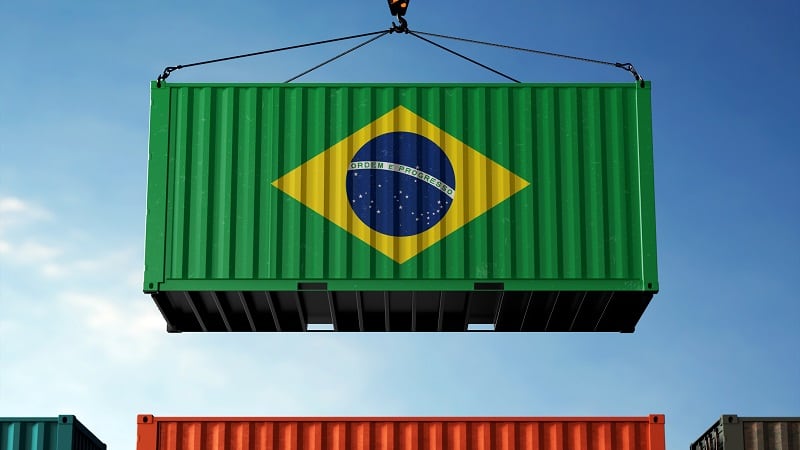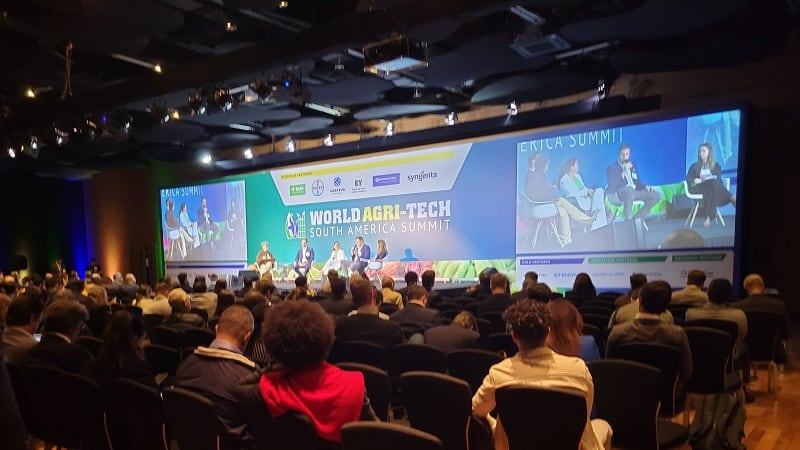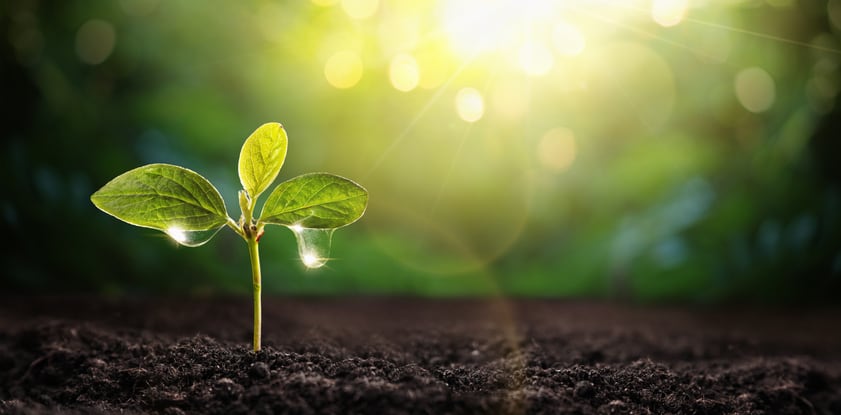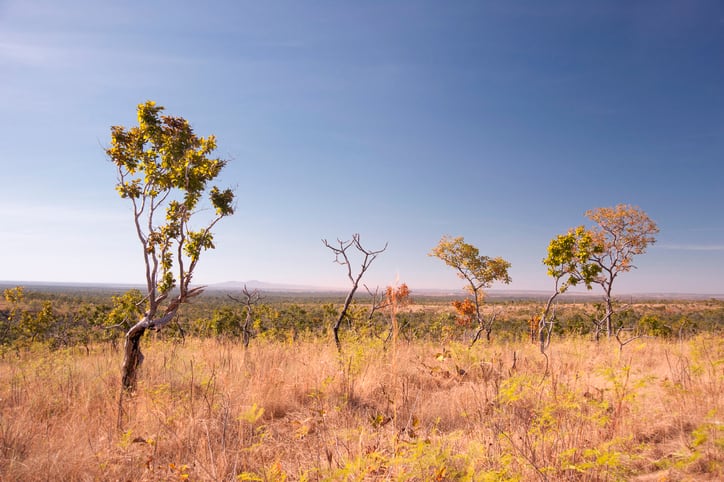Brazil’s sustainable ag sector is booming with the help of agtech, opening up an opportunity for the country to develop into a premier carbon market, Fabiana Alves, CEO Brazil and GM South America for Rabobank, told AgTechNavigator at the 2025 Agri-Tech South America Summit in São Paulo, June 24-25.
“We are living in ... a world of amazing, magnificent opportunities for Brazil to become the regenerative nutrition provider globally — to reposition itself as a country and to create a value-added brand based on green and digital agriculture,” Alves elaborated. Brazil has an “opportunity to become the largest carbon exporter and to make carbon our next commodity.”
‘Capital flows naturally where there is stability’
Brazil’s ag sector is growing due to double and triple cropping and agtech innovation, including biologicals. Brazil’s GDP grew by 1.4% in Q1 2025, with the ag sector growing by 12.2% compared to just 0.3% for the service sector, reported the Agencia de Noticias – IBGE.
Brazil’s ag powerhouse will need further investments — from both LATAM and abroad — to develop into the leading carbon market and support the shift to greener agriculture practices, Alves explained.
Brazil’s President, Luiz Inácio Lula da Silva, signed Law 15.042 on Dec. 14, 2024, establishing the country’s greenhouse gas trading system, which creates a “bonus system for companies or states that reduce the emission of carbon dioxide into the atmosphere,” according to the news release.
Currently, China operates the largest emissions trading system, which covers about 40% of the country’s total carbon emissions, according to the global non-profit the CFA Institute.
What is a carbon market?
Carbon markets are systems where companies and individuals can purchase carbon credits, a commitment to reduce or remove carbon emissions from the atmosphere, according to the United Nation Development Programme. Carbon credits are used to achieve Environmental, Social, and Governance (ESG) goals but have been met with some controversy due to greenwashing concerns.
Over the years, the Brazilian government opened up its financial market, providing more personalized finance options to growers, Alves explained.
The Banco Central do Brasil and the National Monetary Council launched the Open Banking initiative — commonly referred to as the Open Finance — in 2021, allowing consumers to share financial information with banks and third parties. This was to create more competition in the financial services sector and more personalized financial services, according to the The Banco Central do Brasil.
“Capital flows naturally where there is stability and cash flow generation. ... The Brazilian government had to open room for private financial institutions [over] the last three decades because our agribusiness was growing faster than what the government actually could support,” Alves explained.
However, like many markets, small and medium-sized growers might not have the same access to capital as larger growers, requiring the Brazilian government to step in, Alves explained. The National Program to Strengthen Family Farming aims to improve farmers conditions and boost productivity by providing subsidized loans to small farmers.
“Bankability varies, of course, according to many aspects. Small and medium farmers sometimes are more dependent on the government programs, and we need to strive to make sure that capital and support financial support get to ... that segment of our agribusiness and not only to the large-scale farmers,” Alves said.
What EUDR, the Paris Agreement mean for Brazil’s future?
Brazil is also grappling with demands from Europe on deforestation-free commodities, while the US is backpedaling on various environmental policies, creating additional pressures to the country’s budding carbon market, Alves explained.
“When Europe says, ‘I do not care about legal and illegal deforestation. I want zero deforestation,’ they are ignoring a private right.”
Fabiana Alves, CEO Brazil and GM South America for Rabobank
The EU established the European Union Deforestation Regulation (EUDR) in June 2023, which issued a mandate that all cattle, cocoa, coffee, palm oil, rubber, soy, wood and derivatives from these commodities must come deforestation-free sources. The EUDR was set to take effect on Dec. 30, 2024 but was pushed back a year.
While Brazil only exports about 15% to the EU, the EUDR does not fully factor in the country’s existing framework for deforestation, where farmers can cultivate a percentage of their land legally, Alves said.
Landowners in the Amazon Rainforest can clear up to 20% of their land, while farmers in the Cerrado — the tropical savanna located in the center of Brazil — can clear as much as 80% of the vegetation on the land. Most of deforestation (91%) comes from illegal activities, the Center of Life Institute reported.
“When Europe says, ‘I do not care about legal and illegal deforestation. I want zero deforestation,’ they are ignoring a private right,” Alves noted.
Additionally, the US government under the Trump administration pulled out of the Paris Agreement and many American banks are no longer participating in the UN-sponsored Net-Zero Bank Alliance, which will also have an impact on the global push for carbon reduction, Alves said. Carbon “does not have a zip code,” Alves emphasized.
“It is difficult when we are trying to move as a global society in one direction, and we have such an important and relevant player as US backing out,” she elaborated.





